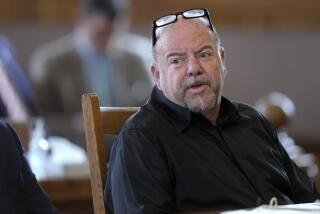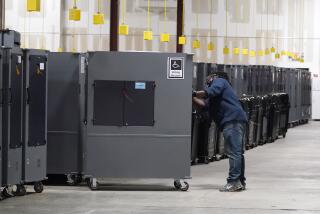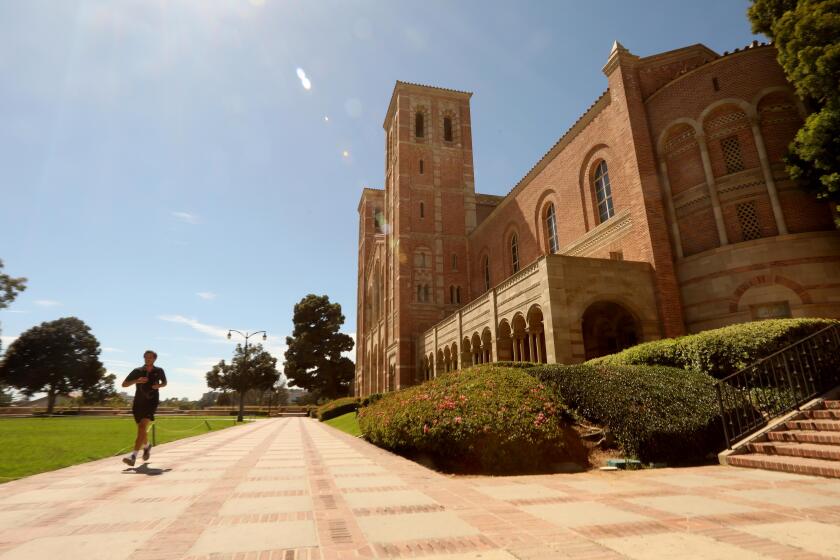Man Convicted in Valley Phone ‘Cramming’ Case
VAN NUYS — The president of a now-defunct Texas-based long-distance company was convicted Thursday of charging tens of thousands of San Fernando Valley residents for services they never received.
Deputy City Atty. P. Greg Parham said Future Telephone Communications, which had a small base of legitimate customers in Texas, was involved in “cramming,” the practice of charging people for long-distance service fees that they never requested or received.
“I call it slamming light,” Parham said. “You don’t actually switch the customer to your company, you just charge them for it.”
He said the practice was the latest high-technology crime until the recent climb of Internet-related fraud.
A lawyer for Future Telephone said the unwarranted charges were made by an outside telemarketing firm without the knowledge of the telephone company’s president, Manuel G. Zepeda Jr.
“He had retained some overzealous telemarketers who probably did engage in these improper acts,” said Dana Cole, Zepeda’s lawyer. “Unlike most con men, Mr. Zepeda returned every cent, which bankrupted his company. No one sustained any loss because that’s the way he wanted it.”
Between August and October 1996, an $8.99 service charge for Future Telephone long-distance access fees was tacked onto about 30,000 Valley residents’ GTE phone bills, Parham said. Several customers noticed and complained to the Public Utilities Commission that the charge was fraudulent.
Commission investigators looked into Future Telephone and found that the company had “very few, if any” bona fide customers in California, Parham said.
The Dallas company and its president, Zepeda, were charged in April 1997 with charging for unapproved services.
Future Telephone was convicted later that year of 25 misdemeanors, fined $25,000, ordered to return more than $500,000 to its victims and placed on probation. But the case against Zepeda was hung up for years when he disappeared, then reappeared and got the case dismissed, a ruling the city attorney successfully appealed. The charges were reinstated in October.
Zepeda pleaded no contest Thursday to six counts of charging for unapproved services and was sentenced to probation and 500 hours of community service and received fines and penalties of $4,050.
More to Read
Sign up for Essential California
The most important California stories and recommendations in your inbox every morning.
You may occasionally receive promotional content from the Los Angeles Times.










